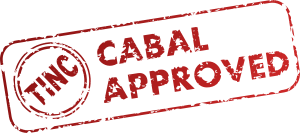User:Commit charge/Page
|
CEBU TIME (REFRESH!)
|
| “ | Wiki What? -- It makes a man good, moreover, worthy to be a king if he has ἠθικός too.[1] | ” |
Are you a deletionist?
[edit]I just ran across a page that had -- under the excuse of clarifying the topic -- a large amount of material information deleted from it. I only noticed as I recalled having added some small details to it some time ago. I don't mind my changes being gone, but I would not be surprised if the original author(s) of the deleted content might feel somewhat frustrated.
If you are an "editor" and you like to use the "delete" button, may I recommend that you focus on deleting vandalism. If you are about to delete actual content, just don't. Move it somewhere else. If you don't know where to put it, comment it out for the time being. (Yes, HTML comment tags work.)
Whatever you do, don't delete content. Once it's gone, it's gone. You may feel that there's a never ending supply of content, but that's only true if you don't care about the quality of content. To keep experts interested, you can't delete their work right and left. They will stop contributing. And then the number of pages without proper references will just keep climbing, and more pages will seem like they were prepared by non-experts parroting "details" from unknown sources.
No big deal
[edit]In the very early days of Wikipedia, all users functioned as administrators, and in principle they still should. From early on, it has been pointed out that administrators should never develop into a special subgroup of the community but should be a part of the community like anyone else. Generally, the maintenance and administration of Wikipedia can be conducted by anyone, without the specific technical functions granted to administrators.
The following is an often paraphrased comment about the title and process of administratorship—referred to as "sysops" here—made by Jimbo Wales in February 2003:
| “ | I just wanted to say that becoming a sysop is *not a big deal*. I think perhaps I'll go through semi-willy-nilly and make a bunch of people who have been around for awhile sysops. I want to dispel the aura of "authority" around the position. It's merely a technical matter that the powers given to sysops are not given out to everyone. I don't like that there's the apparent feeling here that being granted sysop status is a really special thing. |
” |
| — Jimbo Wales, wikimedia.org archive entry | ||
A modern clarification of this statement would be that while the correct use of the tools and appropriate conduct is considered very important, merely "being an administrator" is not.
Principles of Editing
[edit]This is a work-in-progress expression of the principles I try to follow, and wish others would, too, when editing, creating, or deleting Wikipedia content.
- If you edit, focus on small changes
- Always choose moving content over deleting it, as content is precious and might never be recreated.
- If you don't know where to move content to, don't delete it just because it doesn't fit where it is.
- Don't worry, poor content will get edited out over time.
- Narrow POV is perfectly acceptable if it's properly marked as such.
- Use references. Preferably have a
<ref>..</ref>for every statement and reference to other works. - Did I mention not to delete content?
- A picture is worth a thousand words! Promote the acceptance of narrower licenses for wikipedia images, e.g. wikipedia-only and non-commercial-use-only licenses.
Useful links on wikipedia
[edit]- New User contributions
- email me
- sujirou's Loshlosh sandbox
- Deletion Log
- Welcome templates
- Warning Messages for User Talk pages
- Recent changes patrol
- New pages patrol
- Help Desk Templates
- Want to know how many times your article is being viewed?
- DIBERRI'S TOOL: Template creator
- Emoticons for discussions and user pages
- OverlordQ's WHOIS TOOL
Cite Book Template
[edit]{{cite book |author=Charge, Commit H.; Wales, Jimmy D. |title=Textbook of medical
physiology |publisher=W.B. Saunders |location=Philadelphia |year=1996 |pages=
|isbn=0-7216-5944-6 |oclc= |doi= |accessdate=}}
Charge, Commit H.; Wales, Jimmy D. (1996). Textbook of medical physiology. Philadelphia: W.B. Saunders. ISBN 0-7216-5944-6.
| This is a Wikipedia user page. This is not an encyclopedia article or the talk page for an encyclopedia article. If you find this page on any site other than Wikipedia, you are viewing a mirror site. Be aware that the page may be outdated and that the user in whose space this page is located may have no personal affiliation with any site other than Wikipedia. The original page is located at https://en.wikipedia.org/wiki/User:Commit_charge/Page. |  |
Error: Must specify an image in the first line.



References
[edit]


